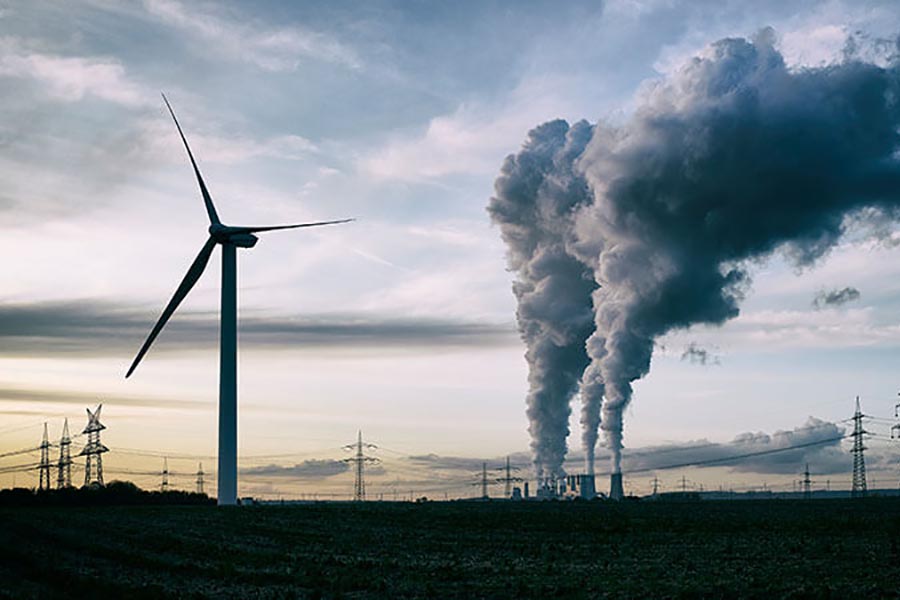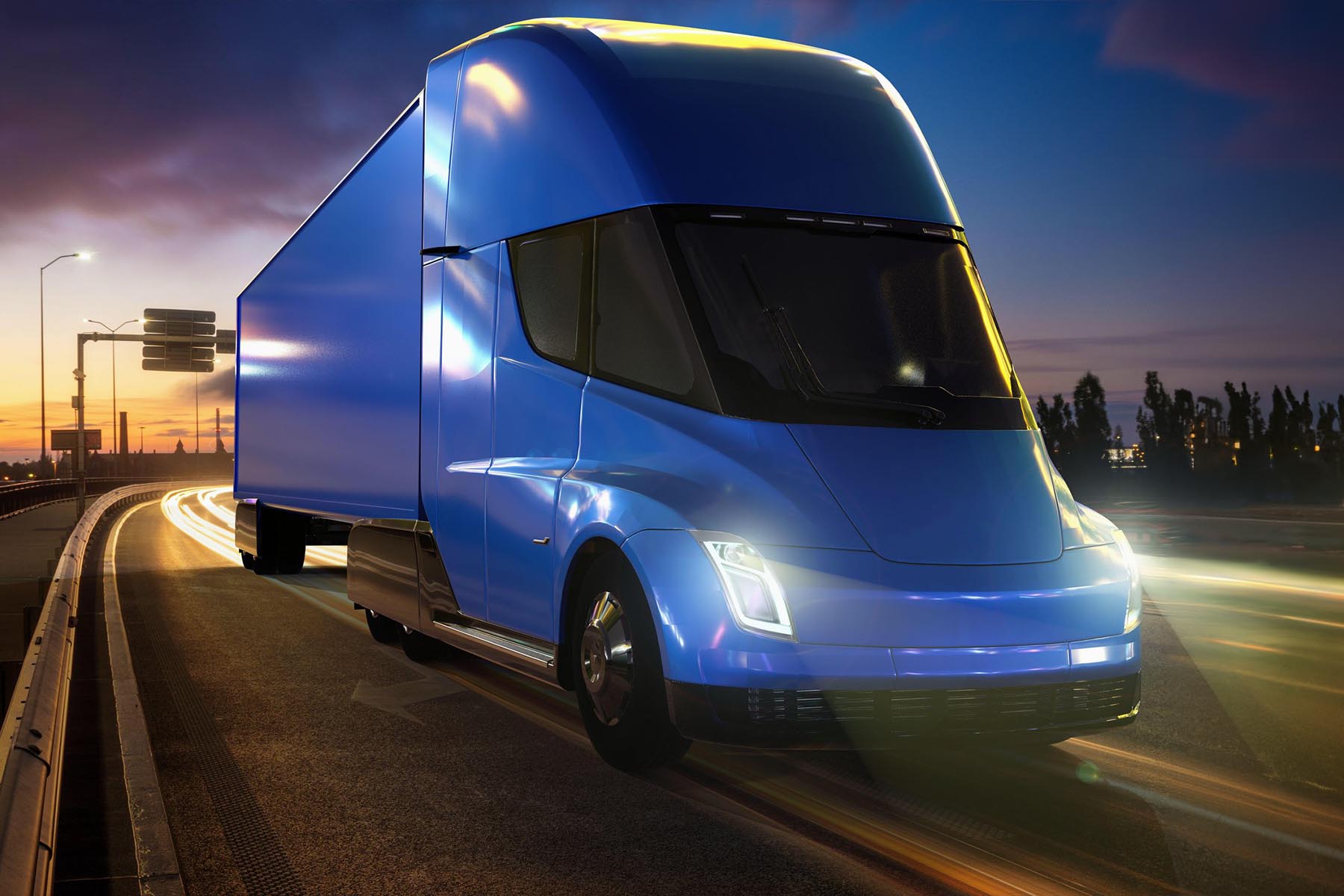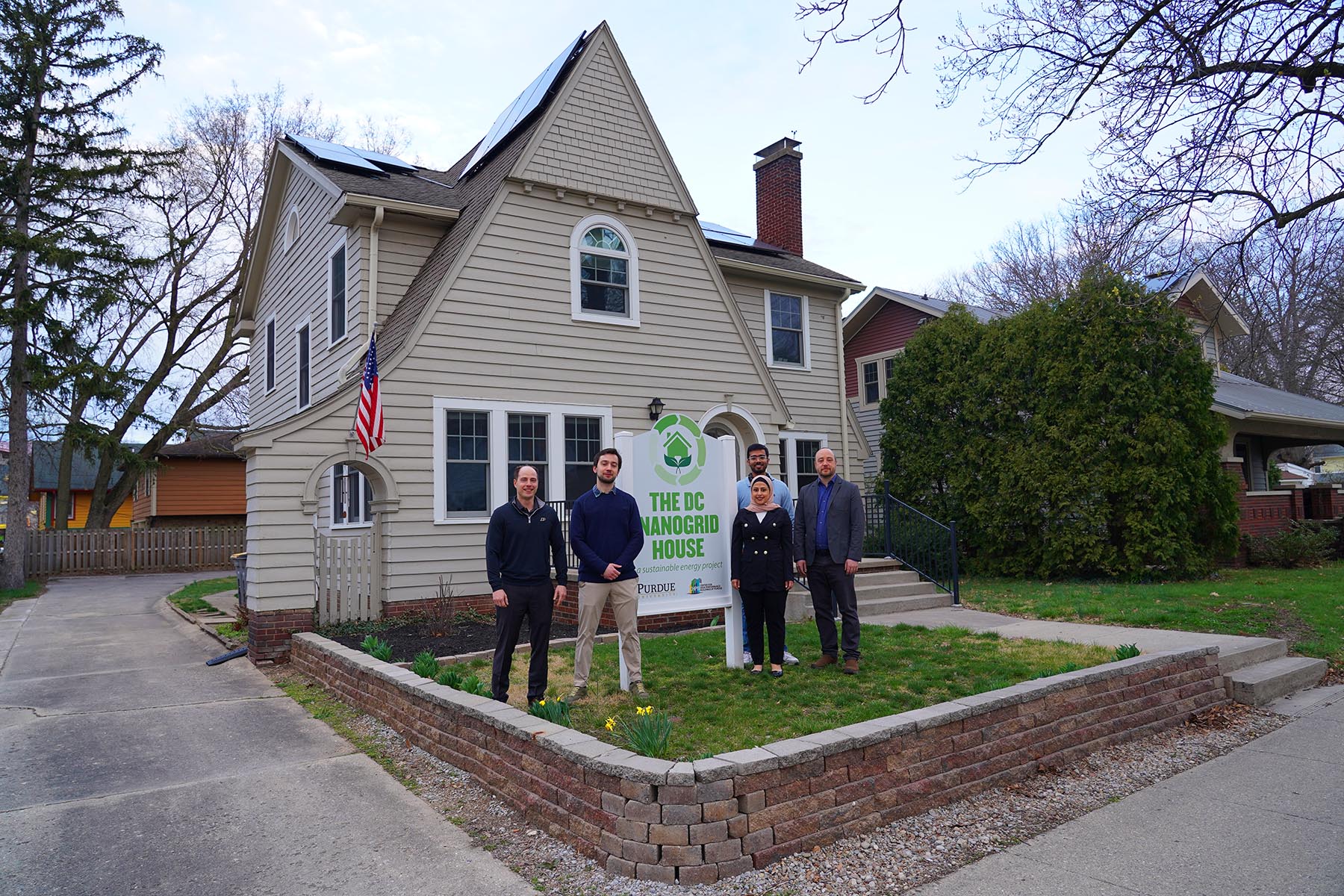Sustainable Energy
Renewable energy is the future. Purdue researchers dive deep into marine energy, wind, solar, and every other energy-generating possibility out there. They also tackle the energy storage technology of today, making batteries and fuel cells function longer and more safely in all of our devices. We believe engineering has the answers to many of the environmental issues of today, and we won't stop until we find them!
Faculty in Sustainable Energy
Fluid dynamics
Biomaterial
Multiphase flows
Non-Newtonian fluid dynamics
Microfluidics
Complex fluids
Soft matter
Renewable Energy Materials (physics-based energy yield predictions, sustainable PV and energy storage materials, recycling)
Electro-Optical-Thermo-Mechanical Reliability (in-situ and in-operando accelerated stress tests)
Heterogeneous Integration & Advanced Packaging (sub-10 μm pitch interconnects, low-loss interposers)
Harsh Environment Electronics Integration (high temperature Pb-free solders and nano-thermal interfaces)
Modeling and Analysis of Thermal Systems
Heat Pumping, Air Conditioning and Refrigeration Technologies
High Performance Buildings
Refrigerant and Lubricant Properties
Thermal Physics ... Heat Moving Energy
Spectroscopy ... "Seeing" energy with light
Nanophotonics ... Pushing light to see more
2D Materials ... Creating functionality by losing dimension
Modeling, Experiments and Simulations of turbulent boundary layers: role of initial conditions and bio-inspired micro-surfaces on evolution of velocity/thermal fields.
Importance of turbulence and complex topography on wind energy.
Integration of renewable with water and thermal storage.
Translational research focus on renewable energy & society
Wall interaction (e.g., bio-inspired micro surfaces) in respiratory flows
Big data in turbulence, renewable energy and biomedical engineering.
Energy and social equality
Experimental fluid dynamics
Development of flow diagnostic techniques
Flow dynamics in stratified environment
Turbulent flow measurements and modeling
Identify interactions and design spaces at the intersection of energy technologies, economics, and decision-making process to minimize the cost of transitioning to new, decarbonized energy systems
Laser absorption spectroscopy diagnostics for gas temperature, pressure, velocity, and chemical species
Laser-induced fluorescence and photophysics
Non-equilibrium gases and reaction kinetics
Hypersonic flows, shock waves, and detonation waves
Combustion and propulsion
Sustainable energy and environment
Combustion and turbulent reacting flows
Combustion and heat transfer in materials
Biomedical flows and heat transfer
Global policy research
Thermal sciences as applied to HVAC&R systems and equipment
Physics-based and data-driven modeling of dynamical systems
Control theory, analysis, and design
Control co-design
Applications: human-machine teaming, multi-phase thermal-fluid systems, manufacturing processes, vehicle electrification
Building electrification, flexibility, and efficiency
Integrating flexible loads, energy storage, and distributed solar into power grids
Optimization and control under uncertainty
Energy policy
Renewable Energy
Catalysts
Aerosol Pollution
Ion Mobility-Mass Spectrometry
Electrical Propulsion
Polymer Characterization
Protein and Biomolecule Characterization
Energy Transfer
Molecular Dynamic coupling at the molecular Scale
Multiscale Multichemistry Plasma Modeling
Optical tweezers and optical manipulation
Nanophotonics
Photothermal conversion and applications
Optical and optoelectronic materials
Nanoscale energy transfer
Laser processing and diagnosis
Acoustic tweezers
Acoustofluidics
Acoustic metamaterials
Ultrasound control
Underwater communication
Ultrasound imaging
Multiphysics wave propagation theory
Noise control and energy harvesting
Naturally nanostructured materials
Energy, water, and wearable technology
Manufacturing
Sustainable manufacturing
Environmental life cycle assessment
Mechanics of multilayered systems
Adhesion in paints and coatings
Lightweighting strategies for transportation
Transport Phenomena in Multi-Scale, Heterogeneous Materials & Systems
Fundamentals of Nanoscale Thermal Transport
Heat Transfer in Natural and Synthetic Fiber Systems
Thermofluids Interactions
Multi-Physics Metrology Design
Electronics Cooling and Thermal Management
Boiling
Condensation
Two-phase Flow
High heat flux
Thermal management systems
Cryogenic systems
Space vehicles
Lunar and Martian environments
Microgravity
Experiments on International Space Station
Electronic cooling
Energy storage and conversion (batteries, fuel cells)
Mesoscale physics and stochastics
Reactive transport, materials, processing, and microstructure interactions
Gas turbine combustion
Internal combustion engines
Laser-based spectroscopy
Mechanobiology and biomechanics
Diagnostics
Bacterial biophysics
Micro/nano fluidics and transport
Biotechnology development
Physicochemical hydrodynamics
Measurement tools
Biomedical devices and wearables
Simulations of nanoscale thermal transport
Machine learning, optimization, and high throughput design
Thermal management in electronics, space, and battery applications
Transport phenomena in additive manufacturing
Nanomaterials and devices for sustainable energy
Model-based system and control design of commercial vehicle power trains
Connected and automated commercial vehicles
Internal combustion engine & after-treatment system design and controls
Flexible valve actuation in diesel and natural gas engines
Electrochemistry, mechanics, interfacial chemistry, and kinetics in energy storage systems
Advanced synthesis, processing, and characterization techniques for energy storage materials
Atomistic-scale modeling of chemical and mechanical properties in energy storage materials
Multi-scale and multi-physics based modeling of Li-ion batteries and fuel cells
Multiphase combustion, particularly related to propellants, explosives, and pyrotechnics
Nanoscale composite energetic materials
Advanced energetic materials
Microscale combustion
Modeling and simulation of hydraulic systems
Modeling and testing of pumps and motors for fluid power applications
Hydraulic valves modeling and testing
Reduction of noise emissions in fluid power systems
Two-Phase Flows and Heat Transfer
High-Heat-Flux Thermal Management Systems for Several Applications, e.g., Outer Space Missions, Electric Vehicles, Ultra-Fast Charging Systems, Electronics Cooling, Avionics, Nuclear Reactors, Metal Manufacturing, Superconductors, Data Centers, etc.
Gravitational Effects
Experiments onboard the International Space Station (ISS)
Two-Phase Flow Instabilities
Fluid-Structure Interactions & Non-Newtonian Fluids in Biological Systems
Desalination & Water Treatment
Water-Food-Energy Nexus
Thermofluids
Nanotechnology
Membrane Science
Advanced electronics cooling and packaging technologies
Phase-change transport phenomena
Additive manufacturing of thermal management components
Topological optimization and machine-learning-based design
Thermal systems analysis for electrification and energy efficiency
Microscale and nanoscale surface engineering for enhanced thermal transport
Nanoscale energy transport
Nano-optics and laser-based nano-optical engineering
Environment friendly design and life cycle engineering
Applications of bio-based materials in manufacturing
Fast and low-cost detection of pathogenic microorganisms
Biomass thermo-chemical upgrading for liquid and gaseous fuel
Deformation, stress, plasticity, fracture
Multiscale modeling, first-principles, molecular dynamics simulations, and finite element modeling
In-situ experiments
Mechanics of redox active materials - Li-ion batteries, Na-ion batteries, all-solid-state batteries
Mechanics of polymeric materials - organic electrochromics, superelastic organic semiconductors
Lithium-ion batteries
Solid-state batteries
In situ and operando characterization
Modeling, simulation, and optimization of battery systems
Micro/nano fabrication
Micro/nano fluidics
Advanced Heat Pumps and Refrigeration Systems
Deep Space Habitats and Systems
Thermal Management Systems
I want to research in
I want to have an impact in...









